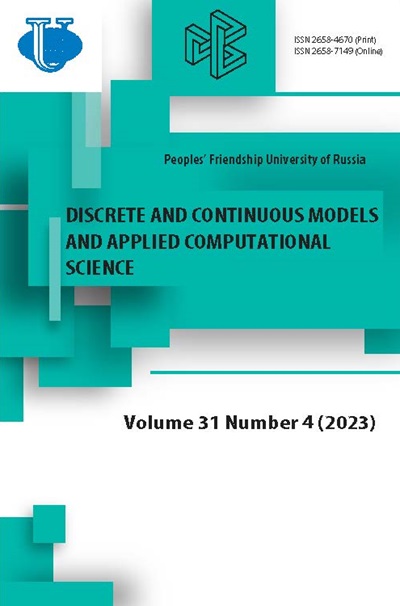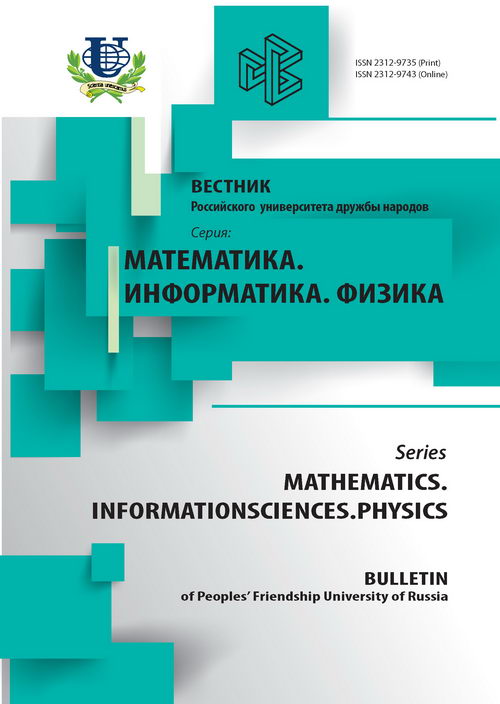Process Control of Unstressed Docking of Plurality of Moving Objects in an Ordered Time Points
- Authors: Mukhametzyanov IA1, Chekmaryova OI1
-
Affiliations:
- Peoples’ Friendship University of Russia
- Issue: No 4 (2014)
- Pages: 106-111
- Section: Articles
- URL: https://journals.rudn.ru/miph/article/view/8582
Cite item
Full Text
Abstract
An algorithm is constructed for controlling a plurality of moving objects, pursuing unpredictably moving body in space, with the aim of unstressed docking with it in an ordered time points. The pursuing objects move on the principle of proportional navigation. To solve the problem, we use the equation of the relative motion, in which there are random forces, both active and inertia. These unknown disturbances we consider continuous and bounded. We introduce a control force, which is the sum of continuous and piecewise-constant functions. The piecewise-constant function is of a variable sign, large enough to offset the presence of perturbations. As a result, the process becomes a “quasi-similar” with the process of the unstressed docking of pursuing objects and the goal in ideal conditions. The self-adjusting method is proposed to automatically select the optimal values of the control. It is carried out by the “principle of feedback on the quasi-acceleration” at discrete points in time. This principle was first proposed by I.A.Mukhametzyanov in an article published in the Bulletin of Peoples’ Friendship University, Series “Mathematics. Information Sciences. Physics” No 3 for 2013. The control system of the pursuing objects automatically selects the piecewise-constant control force for unstressed docking, depending on the parameters of their convergence. It uses information about the distance between the centers of mass of the persecuted and persecuting objects. The control system calculates the second time derivative of this distance. Docking of pursuing objects and the goal shall be held alternately at predetermined intervals of time. Solution of the problem is obtained in the cases of pursuing objects of permanent and variable masses. In the second case, when the motion of controlled objects is carried out by reactive forces, the value of masses spent in the process of the control is estimated. In contrast to previous studies by the authors, such an assessment is made of fuel consumption not only for continuous, but also for the piecewise-constant control.
Keywords
About the authors
I A Mukhametzyanov
Peoples’ Friendship University of Russia
Email: mukhia@mail.ru
Department of Theoretical Physics and Mechanics
O I Chekmaryova
Peoples’ Friendship University of Russia
Email: spacefrogling@mail.ru
Department of Theoretical Physics and Mechanics
References
















